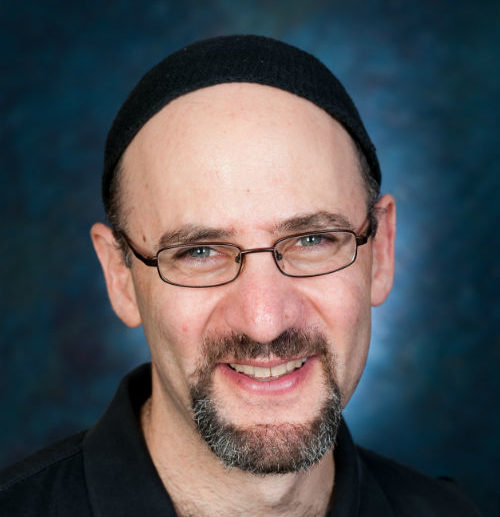In today’s world, rabbis face the challenge of balancing multiple roles in their communal leadership; a rabbi seeks to “comfort the afflicted,” by being a strong pastoral presence to those in need, while at the same time to “afflict the comfortable,” challenge those who are complacent in their lives to awaken to their broader responsibilities to repair brokenness.
This week’s parashah, Bechukotai, offers some interesting insights into this leadership challenge. As the Israelites are preparing to leave their encampment at Sinai, they encounter God’s exhortation to follow a path of holiness. The rewards for staying on the path are clear: abundance, fertility, and the promise of peace (Lev.26:3-13). The punishments for straying are equally stark: exile, hunger, multi-generational trauma, and barrenness (Lev. 26:14-41). In particular, God’s rhetoric highlights the disastrous through an abundance of curses as a means to impress right behavior on a sometimes recalcitrant people.
While a belief in strict reward and punishment may have been a necessary means to ensuring proper behavior for our ancestors, how should a leader try to shape behavior today? What are the rhetorical strategies that today’s Jewish leader should use to exhort people to act in holiness and do justice?
Part of the answer to these questions lies in how we conceptualize leadership. In Leadership Without Easy Answers, Ronald Heifetz notes the difference for a community that understands leadership not as the leader “influencing the community to follow the leader’s vision” but rather “influencing the community to face its own problems.” Were God to embody Heifetz’s leadership vision, She would shift from prescription to description, from anger to more dispassionate analysis, reflection, and coaching. This reconstructed God would let Her people know that communities who go off the path and lose their cohesiveness become weakened by a lack of creativity and increased fear and distrust. The challenge for today’s rabbinic leader is to take on this new leadership style, to cultivate the ground of interconnectedness that allows community members to build the necessary goodwill to face each other and work through conflicts. Rather than prescribing punishment, a leader can shine a light on the positive change that a group can create by working together, despite their differences, to repair injustice.
A second strategy emerges in this same section in the parashah. At the end of the curses, God concludes that He is ultimately bound to fulfill His covenantal promise to redeem the survivors: “I will remember in their favor the covenant with the ancients, whom I freed from the land of Egypt.” Bound up within God’s DNA is the impulse to give heed to suffering and act for liberation. As beings formed in the Divine image, we too have inherited the experience of liberation. Like God, we are also bound to act on this impulse, whether we are commanded to or not. By creating the container for conversation and learning about justice, the rabbinic leader is recreating conditions that allow us to live and act on our ancient value that all peoples deserve redemption from their Egypts. The rabbinic leader’s challenge is to keep aflame the communal spark of redemption; s/he helps us learn, reflect, and take note, like God, that at the core of our communal Jewish DNA is the impulse to respond to suffering and create positive change in the world.
As one who has had the privilege of helping train the next generation of rabbinic leaders at RRC (six of whom are preparing to leave their Sinai “encampment” for new frontiers after their June 5th graduation ceremony), I am appreciative of how much these new rabbis embody these new styles of leadership that are called for today to help sustain diverse, justice-seeking communities. Using contemporary approaches to “exhortation,” they are willing to help guide communities to navigate conflict. They create sacredness by holding up a mirror that reflects back to all participants their goodness and thirst for a redeemed world. And they seek to embody a new leadership rhetoric that replaces punishment with encouragement and critique with inclusivity. As we all journey together to the new frontier of contemporary Jewish life, may these new leaders walk with us and help us to reach for our highest selves as we engage in the needed repair of our planet and its people.
Rabbi Nathan Martin serves as the Director of Student Life at the Reconstructionist Rabbinical College in Wyncote, PA and as the Associate Rabbi of Congregation Beth Israel in Media, PA.

